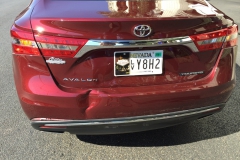Does your house have construction defects? First of all, what is a construction defect? In Nevada, a construction defect can be poor workmanship, a building code violation, a deviation from the industry standard, or a failure of the builder to follow plans or manufacturer specifications or resulting damage caused to your house. Nevada has construction defect laws most favorable to homeowners. For example, if you retain a lawyer, we serve what is called a “Chapter 40 Notice” on your builder. You must be careful that this notice is sent out in time and includes all of the statutory requirements. For example, it must be served within the applicable statutes of limitation or repose periods. What is a repose period? Nevada decided to set an outter limit for when a builder or developer can be sued for construction defects, regardless of notice or when the homeowner became aware of the defects. There are obvious defects, hidden defects and defects of which the builder knew when building the house. The repose periods range from 6 years, to 8 years to 10 years and in some cases can go as long at 12 years. However, there can be shorter time periods to pursue your builder due to statutes of limitation, which are based on when a homeowner knew of a construction defect, or should have known. For example, if a homeonwer knew of a defect in the first year or two of a house’s construction, and did not serve a Chapter 40 Notice until year 6 of the house’s existence, then it could be too late to bring certain claims. There are statutory warranty claims under NRS Chapter 116 which much be brought against the Declarant of a common-interest community within a short period of time. Some homeowners think they are protected because they put their builder on notice of construction defects, and the builder came out, inspected and performed warranty/repair work. THAT DOES NOT PROTECT YOU! The statutes of limitation and repose periods continue to run even if the builder knows of your construction defects, inspects them and/or repairs them. Sometimes builders work with homeowners and perform minor, superficial repairs just to keep the homeowner happy until the statutes of limitation and repose run — then it’s too late for you and a court will dismiss your case. If you have construction defects at your house, for example, cracked drywall, cracked stucco, leaking roofs or windows, cracked or separating concrete, cracked or separating flooring or baseboards, cabinet separation from the walls, cracked or displaced cement block walls, slab movement/tilting or other construction/architectural defects, please give us a call. All of our consultations are free and we have experts in every field of construction who can work on your case and we advance the costs. You do not come out of pocket and we only get paid when you get a recovery from the builder. In Nevada, as opposed to many states, a homeowner is entitled to recover his or her attorney’s fees, costs and interest “in addition to” any amount recovered for repairs, relocation or loss of use. In some cases a homeowner is entitled to recover risk/stigma damages, which are due to structural defects and a house’s loss in market value due to defects. There are many specific statutes pertaining to residential construction defects, and we are glad to discuss them with you at no charge, and all of our initial house inspections are also free of charge. We always need to see the house so we can give you our honest opinion of what’s wrong before you hire us. We handle property damage, structural damage and defects, architectural damage and defects, construction damage and defects, soil/foundation movement, mold or water intrusion, etc. Please give us a call and protect your rights!
01
Jul '14





Leave a reply